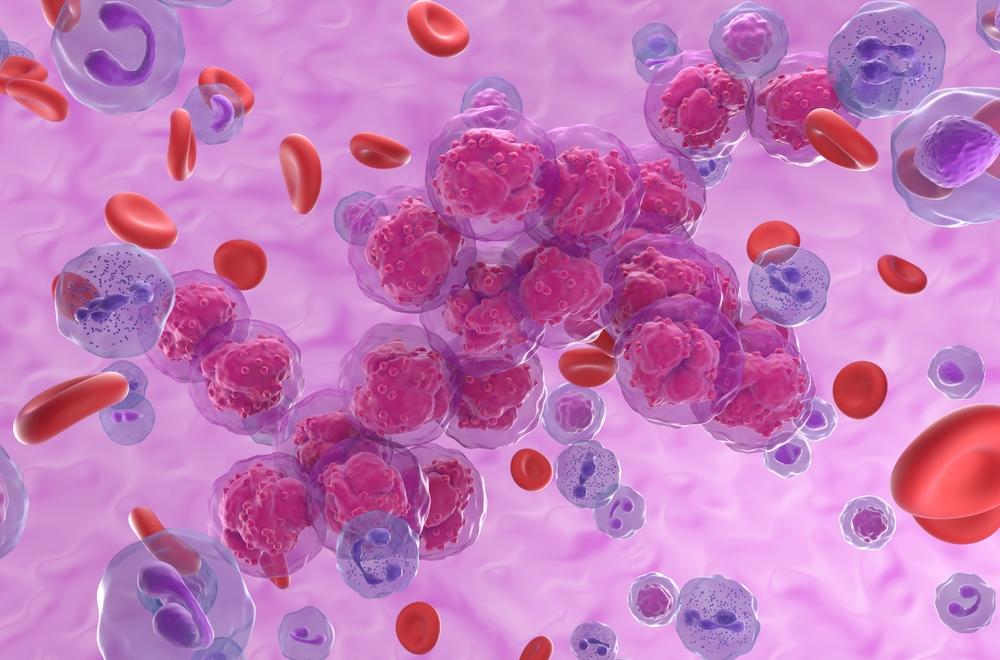Key Takeaways:
- Chronic lymphocytic leukemia (CLL) is a kind of cancer where your bone marrow produces too many lymphocytes, a type of white blood cell (WBC).
- Leukemia can mess up your red blood cells, white blood cells, and platelets.
- Signs of CLL include having swollen lymph nodes and feeling really tired.
- Doctors use blood tests to find out if you have CLL.
- Some things can change the prognosis (chance of recovery) and potential treatment options.
Overview of Chronic Lymphocytic Leukemia (CLL):
Chronic lymphocytic leukemia (CLL) is a type of blood cancer that begins in special cells called lymphoid cells found in the bone marrow. Normally, these cells help our body fight off infections. However, when someone has CLL, these cells start growing out of control and take up too much space in the bone marrow. This can cause problems because there’s not enough room for other important blood cells to grow.
People with CLL have too many lymphocytes in their blood, but these lymphocytes are not normal and don’t work properly to fight infections. In fact, having CLL can make it easier to get sick because the body’s immune system isn’t working as well as it should.
CLL is a type of leukemia that tends to grow slowly, meaning it doesn’t usually cause symptoms right away. Some people with CLL might not even know they have it at first. Sometimes, doctors don’t need to start treatment right away because the leukemia isn’t causing any problems. However, in some cases, CLL can grow faster, and doctors will need to keep a close eye on it to decide the best treatment options.
Symptoms of Chronic Lymphocytic Leukemia (CLL):
Often, chronic lymphocytic leukemia (CLL) doesn’t show any signs, so people might not know they have it. Sometimes, it’s discovered during routine blood tests for other reasons, like if the tests find too many white blood cells. But if CLL does cause symptoms, they can include:
- Feeling weak
- Feeling tired (fatigue)
- Fevers, chills, or night sweats
- Frequent infections
- Weight loss
- Bleeding or bruising easily
- Enlarged lymph nodes
- Pain or a sense of fullness in the upper abdomen, from an enlarged spleen
If you notice any of these symptoms, they could be caused by different health issues. But it’s essential to visit your doctor if you have them. Only your doctor can determine if you have CLL or another type of cancer.
How is Chronic Lymphocytic Leukemia (CLL) Diagnosed:
If your doctor suspects you might have CLL, they’ll need to do some tests to be sure. They’ll ask about your health history, symptoms, and if anyone in your family has had the disease. You’ll also get a check-up to see how you’re doing physically.
What Tests Might I Need: You may have one or more of the following tests:
- Blood tests. Chronic Lymphocytic Leukemia (CLL) is a type of blood cancer that doctors can sometimes find before someone feels sick. They do this by checking the blood with special tests. These tests count the different kinds of cells in the blood. People with CLL usually have too many lymphocytes, which are a type of white blood cell.
- Bone marrow aspiration and/or biopsy: This is a procedure where a small amount of bone marrow fluid and/or solid tissue is taken from the back of the hip bone. First, the area is numbed, then a needle is inserted into the bone to collect the marrow sample. This may cause brief pain. The collected fluid and tissue are examined to check the blood cells’ number, size, and maturity, as well as for any abnormal cells. This helps in diagnosing certain conditions like CLL.
How is Blood or Bone Marrow Tested: Doctors can use blood tests, and sometimes bone marrow tests, to diagnose Chronic Lymphocytic Leukemia (CLL) and figure out how fast it might grow. These tests help doctors understand the condition better. The tests include:
- Flow cytometry and immunohistochemistry. These tests use special chemicals and dyes to check for specific substances on the surface of leukemia cells. This is called immunophenotyping. Doctors use these tests to figure out if someone has Chronic Lymphocytic Leukemia (CLL).
- Cytogenetics. Cytogenetic tests check for changes in the chromosomes of cells taken from blood, bone marrow, or lymph nodes. For instance, in CLL, there might be pieces missing from a chromosome or too many copies of one. These tests can take a few weeks because the cells have to grow in the lab first.
- The FISH test: It is short for Fluorescent In Situ Hybridization, which uses special colorful dyes that stick to specific parts of chromosomes. It helps doctors find changes in genes and chromosomes linked to Chronic Lymphocytic Leukemia (CLL) cells. This test is super accurate and gives results faster than other chromosome tests done in the lab.
How is Chronic lymphocytic leukemia (CLL) Treated:
Chronic lymphocytic leukemia (CLL) is treated with Ibrutinib. The good news is that once your doctor has identified CLL as the cause of your symptoms, a proven treatment is available.
Ibrutinib: Ibrutinib is a medication classified as a targeted therapy used in the treatment of certain types of blood cancers, including Chronic Lymphocytic Leukemia (CLL). It belongs to a class of drugs called Bruton’s tyrosine kinase (BTK) inhibitors.
Ibrutinib works by blocking the action of BTK, a protein that plays a key role in the survival and growth of cancer cells, particularly those involved in B-cell malignancies. By inhibiting BTK, Ibrutinib helps to disrupt the signaling pathways that promote cancer cell proliferation and survival, ultimately leading to the death of cancer cells.
This therapeutic drug is usually taken orally in the form of capsules or tablets, typically once a day. It has demonstrated effectiveness in treating certain types of blood cancers and has become an important option in the management of these conditions.
Reference:
https://www.ncbi.nlm.nih.gov/pmc/articles/PMC4103574/
https://ashpublications.org/blood/article/131/4/379/38474/How-I-treat-CLL-patients-with-ibrutinib


